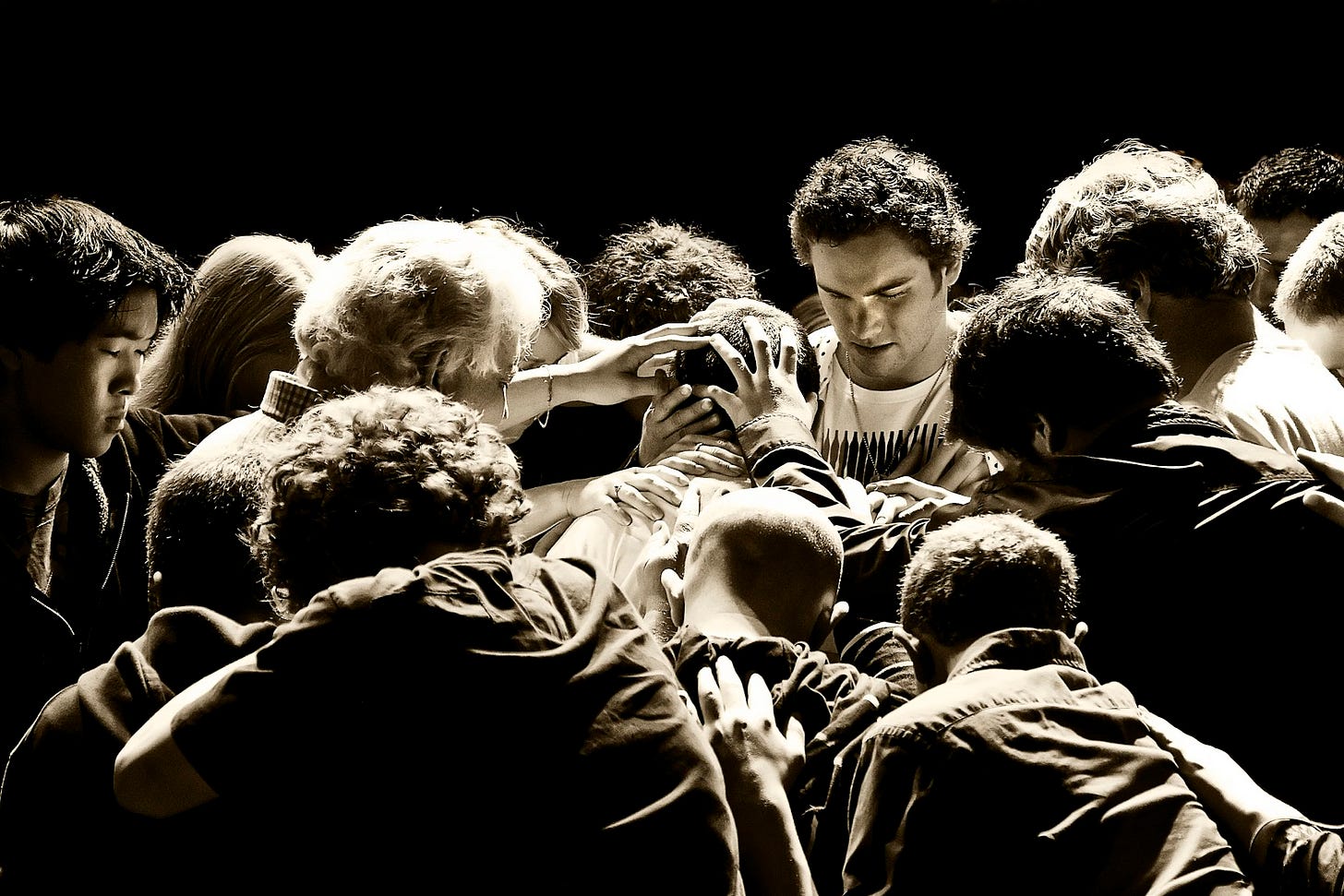Lighthouses and Headlights
Exploring Two Ways Life Unfolds
I have been both a college minister and a Christian high school teacher for about a decade. Each group are often consumed by the question, “What am I supposed to be?” It’s an extremely important question, but I don’t think it’s often a very helpful one - at least in the usual way we go about addressing. I think dealing with the often more stressful question, “What will my path look like to get there?” can be a much more helpful approach. First, let’s address why I think that first question is so often an unfruitful one to focus on. Then, I’d like to share what I think could be a very helpful heuristic for walking through the second question - lighthouses and headlights.
I always find myself rolling my eyes a bit when people stress out about the question, “What am I supposed to be?” or it’s similar cousin, “What is God’s will for my life?” I think the Bible is pretty clear on this: we are called to love God, love others, and in doing so bring forth the His kingdom everywhere we go. Need more? The Bible literally has four great accounts of God himself, in Jesus Christ, teaching on this how we are to love Him and others with commands, parables, and by modeling it in his life. Want something more straight-forward? How about a list of ten basic commandments? Want something more affective? How about scores of psalms, poetry, and narratives about people trying to walk this life out?
Look, I get it. I’m oversimplifying things a bit for effect. When people ask what God’s will for their life is, what they are often asking is “What specific job, career, family, etc. does God want for me?” In other words, what specific ways am I destined to love God and others best? Honestly, I’ve never felt this a compelling question either. I’ve never seen anywhere in God’s revelation to give the impression that he’s set out some kind of ideal path in our lives where there’s a “preferred” Godly decision for every choice we are presented with in life: whether or not we should be a baker or a doctor, single or married, rich or poor, a Floridian or an Ohioan, a Nintendo guy or a Playstation guy, etc. It seems pretty obvious to me now that we are take God’s call to love Him and others as our primary calling and to use our wisdom on how that best plays itself out in the various circumstances we find ourselves in.
As a “logic first” kind of guy, that makes great sense to me on paper. However, I know that living that out isn’t so easy. Walking in wisdom with such freedom for life’s major choices can seem a bit vague and paralyzing. I’ve personally felt that and watched numerous high school and college students walk through it as well. Over time I have developed what I think is a helpful heuristic: lighthouses and headlights. This heuristic isn’t focused on the question, “What am I suppose to be?” - as I said before, I think that’s pretty easily answered. The heuristic is aimed at helping us with the more anxiety inducing question of, “What will my path look like to get there?” Let’s explore them starting with the lighthouse.
A lighthouse gives light and directions to far away passing ships at night. Their light can be seen by ships from miles away. While the lighthouse doesn’t illuminate the entire stretch of water between the ship and shore, it does give a ship enough bearings to feel confident in their overall navigation. I’ve seen this play out in the lives of many Christians. From a very early age they seem to confidently know their overall direction in life (“I’m going to be a doctor!”) as if they can see a kind of future lighthouse guiding them there. The path to get there might be darkened, but the destination is certainly apparent.
The great advantage of the lighthouse is a kind of overall confidence it can give. Having a sense of firm direction for your life (even if it later changes) can provide strong internal motivation and reduce the stress of the ultimate unknown. It often can provide someone with a stable identity (“I’m a marine…I’m a teacher”) that can help them navigate the treacherous waters of young adulthood. However, while lighthouse Christians generally have an idea of where they are headed, they often can’t see the path of how to get there.
The great disadvantage of the lighthouse is the mystery of the now. While knowing the destination on shore is great, there are often rough waters, strong currents, and dangerous rocks that have to be navigated in the meantime. Lighthouse Christians can greatly struggle when the path to their apparent destination takes turns, detours, backtracks, and even seems to stall. In other words, knowing your ultimate destination can be both a grace and a curse. While you have a goal you are striving for, it can make you that much more aware of how every twist and turn of life seems to keep you from that destination. Peace and contentedness are often threatened because it is often caught up in progress towards the ends. When progress isn’t obvious, what can be done? Lighthouse Christians must learn to embrace those twists and turns as ultimately part of their growth. They need to invite God and their church community to help them deal with the difficulties of the mysterious now.
The headlights of a car give light and direction to traveling cars in the dark. Their light projects fifty or so feet forward onto the road revealing immediate obstacles and turns in the road. While the car headlights don’t illuminate very far in the distance, they do give a lot of confidence for the ground immediately in front of the car. I’ve seen this play out in the lives of many Christians as well, especially in my own. While I’ve been generally aware of my giftings as a person, I’ve almost never felt very confident about the ultimate destination (career, job, etc) that my life would take. I switched my college major multiple times and have had several key turning points in my life where I’ve reconsidered its ultimate destination. I’ve always been confident about the fifty feet in front of me (“I think I’m still meant to be a minister…I think I’m going to be single”) until I begin to see a curve just a few feet in from of me (“Maybe I should be a teacher…Maybe I need to consider a new school?”).
The great advantage of the headlights is in being able to see life’s twists and turns as they are happening. When I decided to resign as a college minister and go to graduate school at Wheaton College, I had no idea what I would use the degree for afterwards. The lighthouse Christian would typically choose a school that is a stepping stone to their known destination, but I chose Wheaton College simply because that’s just the next turn that would be wise to take despite not fully knowing where it might lead. About halfway through my program I began to feel that it would be wise to turn to being a high school teacher. The grace of this kind of unfolding in life is that there is a confidence and security in the now. As long as I was paying attention and had the courage to take each wise turn as I saw it appear, I have always felt confident in my immediate choices. I have no idea if I’ll be a teacher or single five years from now, but I’m confident and secure that I am making the wise choice to be so right now.
The great disadvantage of the headlights path is the mystery of the destination. While being confident of my immediate future is great, there is a kind of restlessness that comes with not knowing what it’s all leading to. It can be hard to experience life fifty feet at a time because I so often want to see the bigger context. This can make internal motivation much more difficult to come by as the headlight Christian can be haunted by the question, “Where is all this heading? What is the point?” Peace and contentedness are often threatened because their ultimate purpose still seems so mysterious. Headlight Christians must learn to learn to embrace the lack of clear destination as part of their Godly growth. They need to invite God and their church community to help them deal with the difficulties of the mysterious destination.
Let me wrap this up with some important clarifications. I’m not saying that the Bible indicates God works this way: revealing like a lighthouse to some and as car headlights to others. This isn’t a “biblical principle” that I’m exegeting from any scripture. This is simply my observation from twenty years of being with Christians who are trying to work how to wisely live out their call to love God and others. Of course it’s much more nuanced and complicated than what I’ve claimed. These categories can have lots of overlap and my explanations are still not very articulate (that’s part of the reason I wanted to write about it). Many people start out more in the lighthouse category and see it change, or vice versa. From my experience however, most people tend into those two general categories and I think it can be fruitful to understand how each kind of unfolding can hold great advantages and disadvantages.
To love God with all of our heart, mind, soul, and strength we should be aware of the obstacles we will face. Those Christians who find their lives unfolding more like a lighthouse should use the confidence that comes with seeing their ultimate destination to help their headlight brothers and sisters who very often struggle to see their mysterious destination. Those Christians who find their lives unfolding more like car headlights should use the confidence that comes with seeing their present to help their lighthouse brothers and sisters who very often struggle to see their mysterious now. As both types struggle together to live out the mysterious destination and the mysterious now, we will realize our ultimate need for and dependence on God.
We ultimately have no idea what specific directions our lives will take. By God’s grace we have enough light to live out our lives wisely together in community. As we do so, I believe we’ll begin to feel our anxieties about what we will become slip away. As the famous lyrics say:
Turn your eyes upon Jesus
Look full in his wonderful face
And the things of earth will grow strangely dim
In the light of his glory and grace






